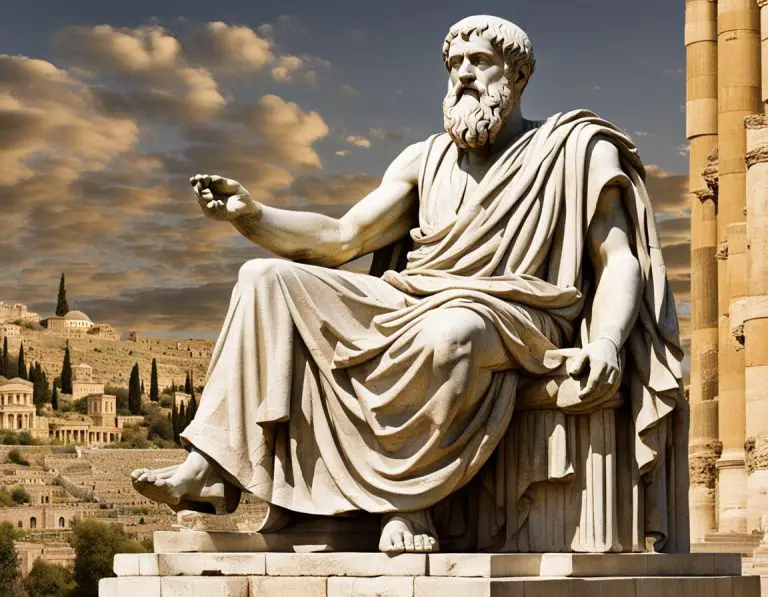The Influence of The Republic on Western Philosophy
The impact of Plato’s “The Republic” on Western philosophy cannot be overstated. This seminal work has served as a cornerstone for many subsequent philosophical inquiries and debates, shaping the intellectual landscape for centuries to come. In particular, “The Republic” has been fundamental in laying the groundwork for political theory, ethics, and metaphysics, providing a rich tapestry of ideas that continue to inspire and challenge thinkers across the globe.
One of the enduring legacies of “The Republic” is its exploration of justice, the nature of the ideal state, and the role of the philosopher-king. These themes have reverberated throughout the history of Western thought, sparking discussions on governance, morality, and the pursuit of knowledge. By delving into fundamental concepts such as truth, beauty, and the nature of reality, Plato’s magnum opus has set a standard for philosophical inquiry that remains relevant and thought-provoking in our contemporary world.
Legacy of Plato’s Political Thought
Plato’s political thought, as portrayed in “The Republic,” has left an indelible mark on Western philosophy. His exploration of justice, the ideal state, and governance continues to be a point of reference for political theorists and philosophers alike. By delving into the complexities of societal structures and the nature of governance, Plato set forth a framework that challenges readers to ponder the essence of an ideal society.
In “The Republic,” Plato introduces the concept of philosopher-kings, individuals who are not only knowledgeable but also possess a deep understanding of what is just and virtuous. This notion of ruling through wisdom and moral integrity has had a profound impact on subsequent political ideologies and theories. Plato’s emphasis on the importance of reason and order in governance has echoed through the centuries, shaping discussions on the role of leadership and the ultimate goal of a just society.
The Structure and Organization of The Republic
Plato’s “The Republic” is structured in a way that allows for a systematic exploration of various philosophical ideas and concepts. The dialogue is divided into ten books, each focusing on different themes and aspects of justice, ethics, politics, and human nature. This organized structure enables readers to follow along as Socrates engages in discussions with various interlocutors, leading to a comprehensive understanding of the ideas being presented.
Furthermore, the organization of “The Republic” allows for a progressive development of arguments and ideas throughout the text. By starting with basic questions about justice and gradually delving deeper into the nature of the human soul and the ideal city-state, Plato builds a strong foundation for his philosophical inquiries. The logical progression of the dialogue aids in clarifying complex concepts and helps readers grasp the interconnectedness of various philosophical themes presented in the work.
Analysis of the Dialogues and Characters
As we delve into the dialogues and characters in Plato’s “The Republic,” we encounter a rich tapestry of philosophical inquiry and thought-provoking interactions. Socrates, the central figure, engages in discussions with various characters, such as Glaucon and Adeimantus, unraveling complex ideas about justice, morality, and the nature of the ideal state. Each character’s perspective serves as a unique lens through which we explore different facets of Plato’s philosophical vision.
The dialogues in “The Republic” are not merely exchanges of words, but rather intellectual battlegrounds where ideas clash and evolve. Through the character of Socrates, Plato constructs a powerful vehicle for philosophical exploration, challenging readers to question their assumptions and delve deeper into the nature of reality and truth. The characters in the dialogues act as mirrors reflecting different aspects of human nature and societal dynamics, inviting readers to contemplate the complexities of ethics, politics, and the human condition.
The Importance of Virtue in Plato’s Ideal State
Plato’s emphasis on virtue within his ideal state in “The Republic” underscores the fundamental principle that a just society is one where individuals uphold moral excellence. Virtue, in Plato’s vision, lies at the core of creating a harmonious and ethical community. By prioritising virtue, citizens are encouraged to strive towards the highest moral standards, fostering a sense of unity and shared values within the state.
Plato believed that a society governed by virtuous individuals would naturally lead to overall happiness and justice. In his ideal state, the connection between virtue and happiness is inseparable. By cultivating virtues such as wisdom, courage, moderation, and justice, individuals not only enhance their own well-being but also contribute to the greater good of the community. Plato’s profound insight into the intrinsic link between virtue and happiness continues to resonate throughout history, reminding us of the enduring significance of moral integrity in shaping a flourishing society.
Connection Between Virtue and Happiness
The fundamental principle that underpins the connection between virtue and happiness in Plato’s work, The Republic, is the concept of the tripartite soul. Within this framework, Plato argues that the soul is composed of three distinct parts – reason, spirit, and desire. When these parts are properly aligned and harmonized, an individual experiences eudaimonia, a state of flourishing and true happiness. This balance is achieved through the cultivation of virtues such as wisdom, courage, moderation, and justice.
Plato’s ideal state in The Republic serves as a microcosm of the individual soul, where each citizen is assigned a societal role that corresponds to one of the three parts of the soul. Through the practice of these virtues within their designated roles, individuals contribute to the overall harmony and well-being of the state. Thus, according to Plato, true happiness is not merely a fleeting emotion but a state of being that is achieved through the pursuit of virtue and the realization of one’s true purpose in life.
Related Links
Why is The Allegory of the Cave Significant in Plato’s Philosophy
What is the Role of the Philosopher King in Plato’s Philosophy
